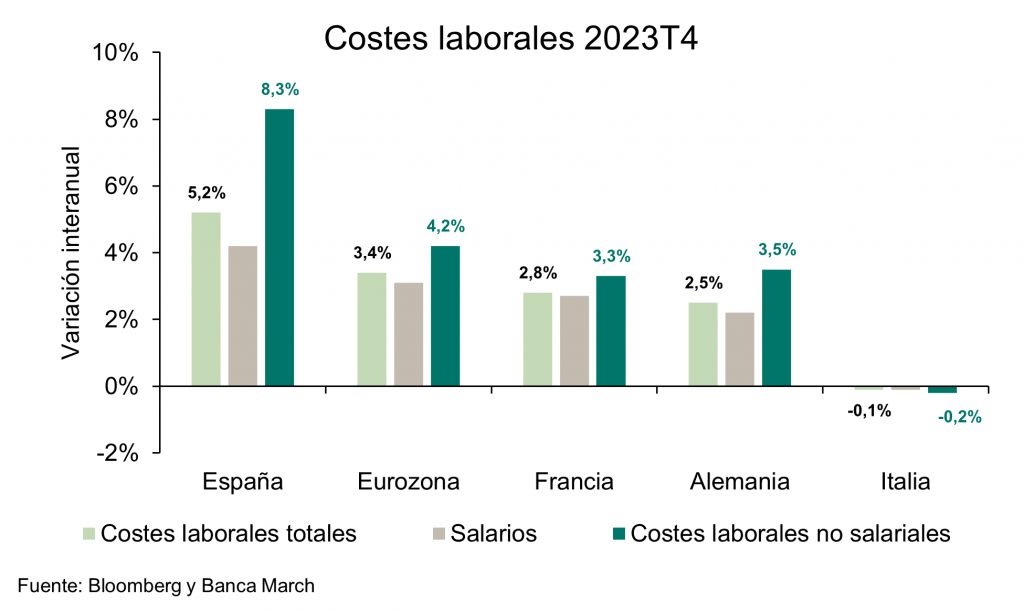Banca March: Economic policy uncertainty and rising labour costs, the two concerns of the governor of the Bank of Spain, Hernández de Cos, who pointed out the need for greater regulatory quality and a strengthening of business confidence, in a political context in which companies are negatively impacted by the situation of uncertainty.
All this, accompanied by an increase in non-wage labour costs -see graph- at the top of the list of European countries, which deteriorates the competitiveness of Spanish companies. The combination of these two factors may have a negative impact on investment and future growth, as the governor warned.

In the euro area, labour costs increase mainly due to non-wage components -social contributions and taxation-. In the monetary union as a whole, year-on-year growth for 2023Q4 was 4.2% compared to 3.1%, with total cost growth of 3.4%. It is worth mentioning the case of Spain, with a wide differential of 8.3% in non-wage growth compared to 4.2% in wage growth. Thus, the increase in total costs was 1.8 p.p. higher than in the euro area as a whole. By contrast, labour costs in France, Germany and Italy grew less than in the euro area: 2.8%, 2.5% and -0.1%, respectively. Wages were also more contained: 2.7%, 2.2% and -0.1%, respectively.





